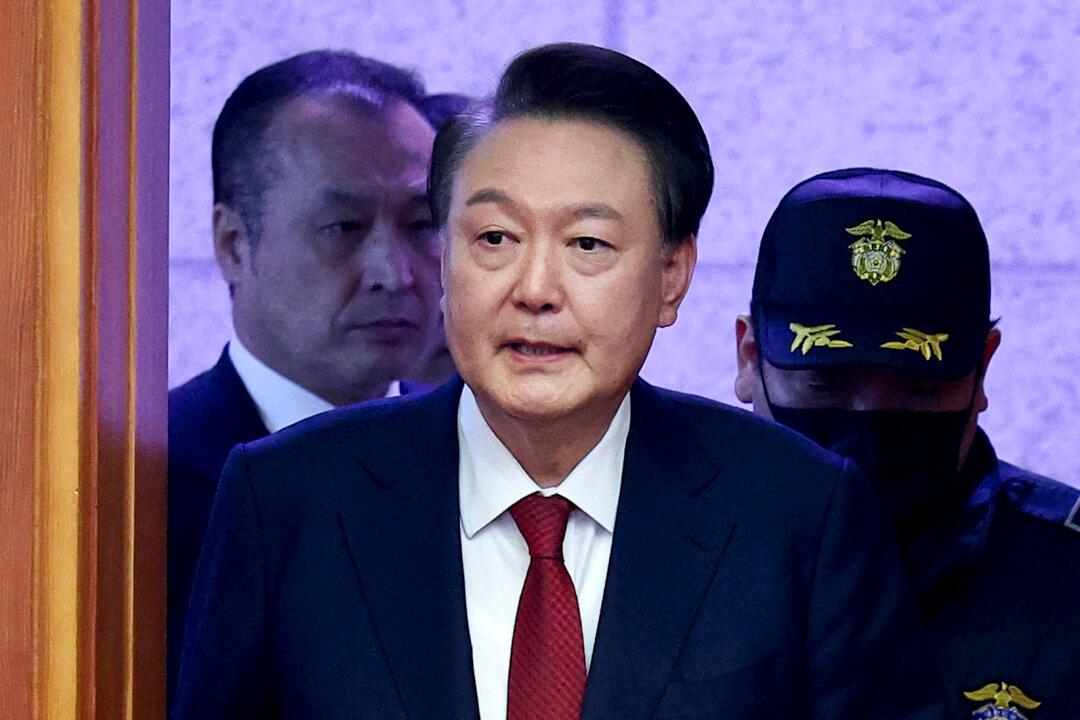South Korean President Yoon Suk Yeol was indicted on Jan. 26 on charges of leading an insurrection over his imposition of martial law, according to a statement by prosecutors.
Yoon declared martial law on Dec. 3, 2024, claiming he would eradicate “pro-North Korean anti-state forces.” He said he had no choice but to resort to such a measure in order to safeguard free and constitutional order, saying opposition parties have taken hostage of the parliamentary process to throw the country into a crisis.
Yoon revoked the martial law order roughly six hours after lawmakers voted down the decree, after being confronted by soldiers in the parliament building.
He was impeached by parliament and suspended from his duties on Dec. 14. Anti-corruption investigators last week recommended charging him.
Yoon has been in solitary confinement since he was arrested on Jan. 15.
This weekend, the court denied two requests from prosecutors to extend Yoon’s detention while conducting further investigation, according to media reports. After the charges were filed, prosecutors again requested that he be kept in custody.
Yoon’s lawyers have called his detention illegal and are calling for his immediate release.
In South Korea, insurrection is one of the few criminal charges that are not covered by a sitting president’s immunity and is punishable by life imprisonment or death. However, the nation has not executed anyone in decades.
At a press conference, Democratic Party spokesman Han Min Soo said Yoon is “facing charges of being a ringleader of insurrection.”
“The punishment of the ringleader of insurrection now begins finally,” he said.
Last week at a Constitutional Court hearing in his impeachment trial, Yoon and his lawyers argued that his intentions were never to fully impose martial law and that his actions were meant as a warning to end political deadlock.
The top court has 180 days to decide whether to remove him from office or reinstate his presidential powers.
On Dec. 14, South Korea’s opposition-led parliament impeached Yoon, the second conservative president to be impeached in the nation.
A presidential election will be held within 60 days if Yoon is removed from office.
Reuters contributed to this report.
South Korean President Indicted on Insurrection Charges Over Martial Law Order
The charges are unprecedented for a South Korean president.

South Korean President Yoon Suk Yeol arrives for his impeachment trial at the Constitutional Court in Seoul, South Korea, on Jan. 21, 2025. Kim Hong-Ji/Pool/AFP via Getty Images




